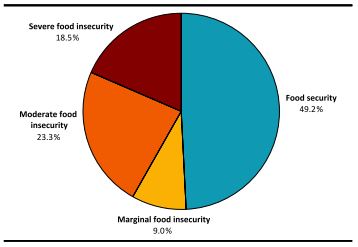2 New PROOF Publications Examining Housing and Food Insecurity in Latest Volume of Canadian Journal of Public Health
June 21, 2017
A natural experimental study of the protective effect of home ownership on household food insecurity in Canada before and after a recession (2008–2009)
McIntyre L, Wu X, Kwok C, Emery H (2017)
Canadian Journal of Public Health 2017; 108(2), e135–e144. [Abstract]
McIntrye et al. used population data to examine the effect of the economic recession of 2008-09 on food insecurity among homeowners and renters. The authors found that the recession increased the vulnerability of renters to food insecurity but had no impact on homeowners. The results of this paper indicate a reduced ability among renters to weather financial shocks.
High vulnerability to household food insecurity in a sample of Canadian renter households in government-subsidized housing
Fafard St-Germain AA, Tarasuk V (2017)
Canadian Journal of Public Health 2017; 108(2), e129–e134. [Abstract]
Fafard St-Germain and Tarasuk examined the prevalence and severity of household food insecurity in a sample of households living in government-subsidized housing across the ten provinces. The study results show that half of the households were food insecure, with 1 in 4 experiencing moderate food insecurity and 1 in 5 experiencing severe food insecurity. Greater income was associated with lower risk of food insecurity, suggesting that income support is needed to reduce food insecurity among households living in government-subsidized housing.

